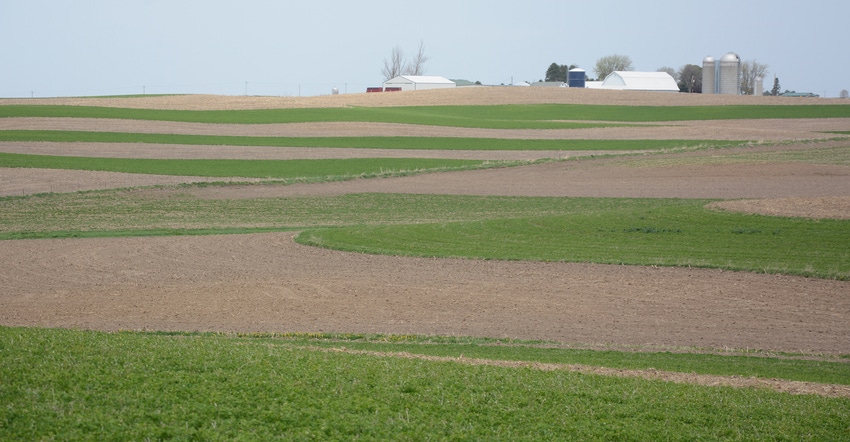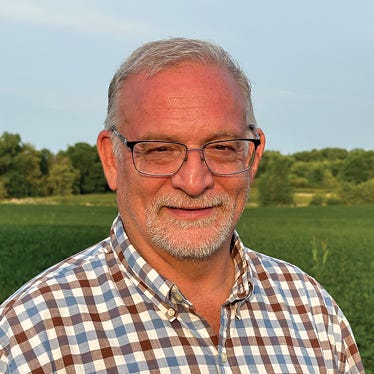May 4, 2020

Discovery Farms Minnesota has a new report available summarizing data collected in Goodhue County.
“Lessons Learned from Shafer Farms,” appropriately subtitled “Implementing Conservation in a Rolling Landscape,” provides edge-of-field surface runoff data along with farm practice data to show how utilizing landscape appropriate practices provides long term sustainability.
Schafer Farms, established in 1886 near Goodhue, Minn., is operated by Lowell and Pat Schafer, along with their two sons and daughters-in-law. Brandon and Monica oversee the swine enterprise and manure management while Brian and Heather manage the farms beef and crop production. As the sixth generation to work the land, Brian and Brandon appreciate the stewardship ethic of their forefathers and are working to ensure that Schafer Farms remains sustainable for future generations.
Cropland at Schafer Farms is primarily a corn silage-alfalfa rotation, with rye grown following corn silage. Manure from the beef and swine operations provides crop nutrients. Water quality data collected from 2010 through 2017 shows that despite the challenges associated with slopes that average more than 6%, nutrient and sediment losses are on par with other Discovery Farms monitored locations across the state.
Water infiltration at this location was very high. Only 7% of precipitation left the field as surface runoff and 76% of surface runoff occurred when soils were frozen. The high infiltration rate is influenced by soil type and the crop rotation in place.
Discovery Farms Minnesota is a farmer-led effort to gather field scale water quality information from different types of farming systems, in landscapes throughout Minnesota, providing practical, credible, site-specific information to support better farm management decisions.
Tile drainage samples and surface water samples are collected to provide measurements of sediment, nitrogen and phosphorus movement over the soil surface and through subsurface drainage tiles. The program is administered by the Minnesota Agricultural Water Resource Center in partnership with the Minnesota Department of Agriculture, local water monitoring partners—in this case the Goodhue County SWCD—and participating farmers.
Primary funding for the program is provided by the Minnesota Corn Research and Promotion Council. The MDA provides in-kind technical expertise and equipment utilizing Clean Water Funds. Additional funding has been provided by the Minnesota Soybean Research and Promotion Council, Minnesota Turkey Research and Promotion Council, and the Natural Resource Conservation Service.
The full report can be found on the resources page at the Discovery Farms Minnesota website, along with previous “Lessons Learned” reports from Chisago and Kandiyohi counties, overviews of other participating farms, and more complete program and contact information. You will also find real-time information on water flow, soil temperatures and climatic conditions on all monitored sites.
The program partners wish to extend a special “thank you” to the Schafer family for their willingness to participate in the program.
Formo is executive director of the Minnesota Agricultural Water Resource Center.
About the Author(s)
You May Also Like






